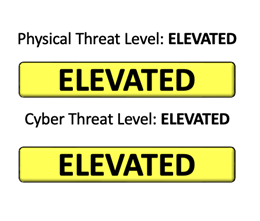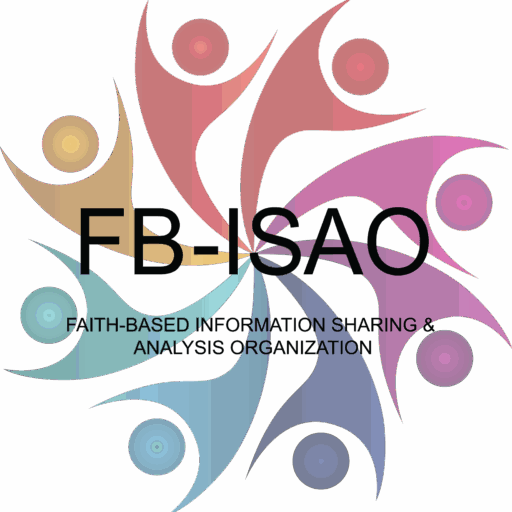Faith-Based Security Headlines
These updates are shared to help raise the situational awareness of Faith-Based organizations to best defend against and mitigate the impacts from all-hazards threats including physical security, cybersecurity, and natural disasters.
DHS, FBI warn large-scale events could be target for violence
The DHS and the FBI have issued a Joint Intelligence Bulletin (JIB) warning that large-scale public events this summer such as World Pride 2025, Independence Day celebrations, and the U.S. Army’s 250th anniversary parade could be potential targets for violence. While no specific threats have been identified, officials caution that domestic violent extremists, individuals inspired by foreign terrorist organizations, and other attackers not driven by ideology have previously targeted public gatherings with little or no warning. The bulletin highlights that tactic like vehicle-ramming, firearms, and improvised explosive devices (IEDs) have been used in past attacks, and incidents like the New Year’s Day truck attack in New Orleans may serve as inspiration for future acts of violence.
The JIB also notes that recent events, such as the fatal shooting of two Israeli Embassy staff members in Washington, D.C., underscore how international conflicts, like the ongoing Israel-Hamas war, can inspire violence domestically. Online platforms have seen users praising such attacks and calling for more violence, raising concerns about potential copycat incidents.
In response, DHS and the FBI urge law enforcement agencies and private sector security partners to remain vigilant and enhance security measures at upcoming public events. They recommend increased surveillance, public awareness campaigns, and coordination among agencies to mitigate potential threats and ensure public safety.
Analyst Comments The joint DHS and FBI bulletin serves as a stark reminder that public events, especially those with symbolic or cultural significance, remain vulnerable to various forms of violence. With no specific threats identified, the emphasis shifts to the unpredictability of attacks and the wide range of potential perpetrators from ideologically driven extremists to individuals acting alone without clear motives. The warning underscores the growing influence of global conflicts, such as the Israel-Hamas war, on domestic security, as online platforms amplify and glorify violent acts. Security agencies are urging enhanced coordination, increased surveillance, and public awareness to reduce the risk of copycat incidents and ensure the safety of attendees at high-profile gatherings this summer. Members can access the full JIB in FB-ISAO Slack.
Resources: Stay Safe and Secure: Essential Tips for Large Events and Gatherings
Firm in Baltimore Archdiocese bankruptcy case says stolen data was deleted after cyber breach
The Berkeley Research Group (BRG), involved in multiple Catholic Church bankruptcy proceedings, including that of the Baltimore Archdiocese, experienced a cyberattack compromising sensitive data, potentially including information on sexual abuse survivors. BRG paid the ransom and received confirmation of data deletion. However, the U.S. Department of Justice has raised concerns about BRG’s handling of the breach, particularly the delay in public notification and the potential exposure of highly sensitive information. The incident highlights the complexities and ethical considerations organizations face when dealing with ransomware attacks, especially involving confidential and sensitive data.
Akira Ransomware: When Paying Isn’t Enough to Stay Anonymous
Recent reports highlight the persistent threats posed by ransomware attacks, even when victims comply with attackers’ demands. A New Jersey-based company specializing in video systems for governmental and military clients fell victim to the Akira ransomware group. Despite negotiating the ransom down from $600,000 to $200,000 and receiving a “deletion log” as proof of data erasure, the victim’s negotiation details, and file structure were publicly leaked, undermining assurances of confidentiality and data deletion. This incident underscores the unreliability of cybercriminals’ promises and the risks involved in ransom payments.
Analyst Comments: These incidents highlight the continuing risks organizations face even after paying ransomware demands. The Akira case shows that cybercriminals may still expose sensitive details despite assurances, undermining any expectation of trust. In the case of BRG and the Baltimore Archdiocese, delayed disclosures and the potential exposure of abuse survivor data raise serious concerns about transparency and the handling of sensitive information. Both situations underscore the need for stronger incident response protocols, legal guidance, and an emphasis on prevention over reactive payments. Gate 15 has a Summer of Security blog discussing Ransomware Resilience Series highlighting the essential considerations for organizational leaders and cybersecurity professionals.
Shooting outside Jewish museum raises questions about shifts in political violence
On May 21, 2025, two Israeli Embassy staffers, 26 were fatally shot outside the Lillian & Albert Small Capital Jewish Museum in Washington, D.C., after attending a diplomatic reception. The suspect was apprehended at the scene and reportedly stated, “I did it for Palestine, I did it for Gaza.”
Federal authorities are investigating the incident as both a hate crime and an act of terrorism. This attack is notable as it may represent a shift in the nature of antisemitic violence in the U.S., which has traditionally been associated with far-right extremism. Seth Jones of the Center for Strategic and International Studies noted that an attack by someone from the violent far left against individuals based on their Jewish faith is relatively new in the United States.
Analyst Comments: The shooting outside the Capital Jewish Museum marks a disturbing development in the landscape of political violence in the U.S., highlighting how ideological extremism tied to international conflicts is manifesting domestically. The suspect’s explicit justification claiming the attack was for Palestine illustrates how global tensions can be weaponized to target civilians based on ethnicity or affiliation. This act challenges assumptions that antisemitic violence primarily stems from far-right actors, signaling a broader and more complex threat environment. It also underscores the vulnerability of diplomatic personnel and the urgent need for enhanced protective measures at cultural and religious institutions.
Potentially deadly bacteria found in invasive tick for first time in US
Connecticut officials have confirmed the first U.S. case of the invasive long-horned tick carrying Ehrlichia chaffeensis, the bacterium responsible for human monocytic ehrlichiosis (HME), a potentially fatal disease. HME typically causes symptoms such as high fever, chills, and fatigue, which can escalate to severe complications like kidney failure and respiratory issues. Previously, HME was primarily spread by the native lone star tick, but the detection of the bacteria in the long-horned tick is alarming due to the invasive species’ prolific and asexual reproduction, as well as its broad feeding behavior, enabling swift geographic spread.
Connecticut officials have confirmed the first U.S. case of the invasive long-horned tick carrying Ehrlichia chaffeensis, the bacterium responsible for human monocytic ehrlichiosis (HME), a potentially fatal disease. HME typically causes symptoms such as high fever, chills, and fatigue, which can escalate to severe complications like kidney failure and respiratory issues. Previously, HME was primarily spread by the native lone star tick, but the detection of the bacteria in the long-horned tick is alarming due to the invasive species’ prolific and asexual reproduction, as well as its broad feeding behavior, enabling swift geographic spread.
Analyst Comments: There is a concern over the discovery of Ehrlichia chaffeensis in the invasive long horned tick, marking the first such case in the U.S. This species’ rapid reproduction and ability to feed on a wide range of hosts make it especially worrisome for public health officials, as it can spread quickly and silently. Experts warn that the tick’s presence may increase the risk of serious tick-borne illnesses beyond traditional hotspots. To protect yourself, avoid wooded and grassy areas during peak tick seasons, use insect repellents, wear long sleeves and pants when outdoors, and check your body and pets for ticks after spending time outside. Promptly removing attached ticks with tweezers can reduce the risk of infection. Regular landscaping, such as mowing grass and removing leaf litter, also helps limit tick habitats around your home.
Resources:
Nerd Out EP 58. A triple threat of topics and recapping Andor
The Gate 15 Nerd Out! Security Panel Discussion, moderated by Dave Pounder, focuses on physical security topics including terrorism, extremism, hostile events, and other pertinent topics.
In this week’s Nerd Out Dave and Alec discuss:
- Severe weather to include NOAA’s latest hurricane forecast
- Sabotage in France
- Geopolitical events hitting the homeland
- The second season of Andor
Information on other Gate 15 podcasts can be found at Podcast.
Get the Daily Awareness Post Delivered to your Email!
More Faith-Based Stories
‘Keep showing up’: Capital Jewish Museum reopens after deadly shooting
Shooting outside Jewish museum raises questions about shifts in political violence
‘Pulled a Knife on a 17-Year-Old’: FBI Investigates Attack on Christian Prayer Rally in Seattle
TX: Pharr church vandalized for the fourth time in one month
TX: Church robbed 3 times in 2 weeks: Pastor prays for thieves who stole outreach equipment
OH: ‘A big loss’: Church steeple, roof collapse in massive Maria Stein fire
OR: Salem church rebuilding after destructive arson
TX: Offices of north Harris County church dedicated to ‘second chances’ burglarized
Kansas man arraigned for alleged church vandalism
Dearborn man suspected of racist threats at synagogue pleads guilty to weapons offense
Temple Beth El heightens security in wake of Israeli embassy killings
ADL: Jewish Community Faces Unprecedentedly High Threat Environment
Rabbis increase security in wake of DC shooting
The 5 Most Dangerous Myths in Church Security
Man accused of Wichita church vandalism arraigned on criminal charges
Island faith leaders decry ICE detentions
Officials announce $1.5M in funding to rebuild Clayborn Temple
Background Screening for Nonprofits: What to Consider
Watch video of church vandalism in west end
Federal Authorities Probe Effort to Impersonate White House Chief of Staff
Migrant arrested over handwritten letter threatening Trump assassination may have been set up
USFA to close emergency management information-sharing, analysis center
Hackers say they’ve snatched data from the Salvation Army
Brooks & Dunn, Jason Aldean Concerts Abruptly Canceled Due to Safety Concerns
Tornado season 2025: active through April, and May is keeping pace
NWS: Severe Thunderstorms and Possible Flooding in the East
‘Dangerous’ heat wave expected to break records across California this weekend
Hurricane season is upon us, but NOAA and FEMA are not ready
Eyes on the southwest Atlantic for early-June tropical development
Recent Canadian wildfires are record-breaking – and will threaten US air quality for days
Inside the scramble to keep FEMA alive ahead of hurricane season
Global Health Center Overview: Fact Sheet
Health-ISAC Hacking Healthcare 5-22-2025
Public-Private Sector Partnerships For Space Systems Innovation And Security
WiFi Is Hitting a Wall in Crowded Buildings
Are your AI tools secure? New analysis reveals gaps among market leaders
More Security-focused Content






